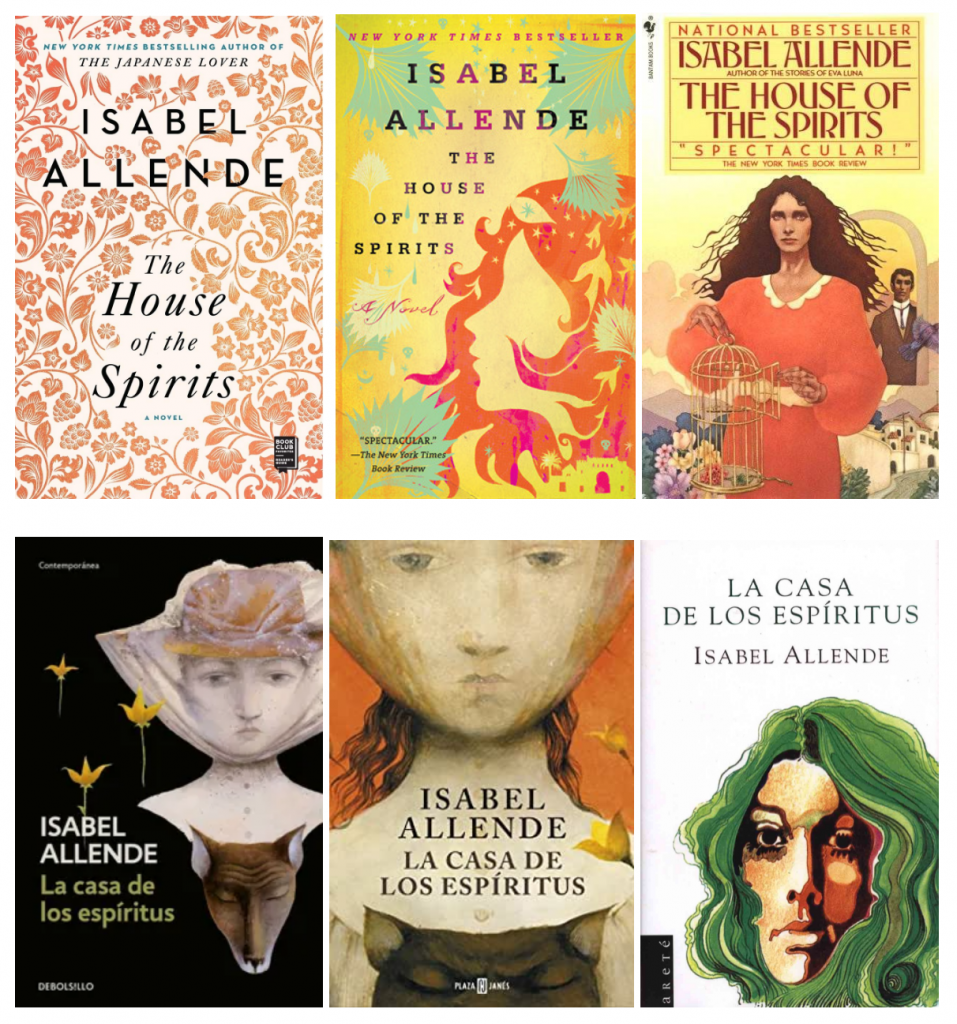By: Andrea Benatar
Isabel Allende’s debut novel, House of the Spirits (or La casa de los espiritus), employs magical realism to relay the story of the Trueba family across four generations. Moving in and out of the perspective of the twisted protagonist and head of the family, Esteban Trueba, the narrative centers around the supernatural abilities, strength, and wisdom of two powerful and mysterious women: his wife, Clara, and his granddaughter, Alba. Though it is never explicitly stated, the novel takes place in Chile throughout the 20th century leading up to the revolution of 1973, and is a semi-autobiographical account. According to Allende, the book was inspired by a letter she wrote to her dying grandfather recounting the stories he told her, memories from her childhood, and her own political involvement leading to her exile from Chile.
House of the Spirits weaves intricate themes of family systems, gender roles, political extremism, and social inequality under the guise of absurdity. However, the intentional subversion and obscurity of historical events, reminiscent of many other magical realism novels, creates a certain discomfort and distrust that has likely set the stage for several challenges and contentions in schools.
Though the novel has never been officially banned, it has faced several challenges in schools since the time of its publication in 1982, often being characterized as “pornagraphic”, “immoral” and “defaming the Catholic faith”. The most recent, and perhaps most significant, challenge came about in 2013 when several parents at a North Carolina high school raised formal complaints to the school board regarding the book being a part of the English curriculum. The book was retained after three appeals and a defense letter from Isabel Allende herself. In the letter, the author writes:
“I find myself in the unusual and awkward position of having to “defend” my novel The House of the Spirits that risks being banned from a high school in Boone, North Carolina. Banning of books is a common practice in police states, like Cuba or North Korea, and by religious fundamentalist groups like the Taliban, but I did not expect it in our democracy…”
Isabelle Allende
The novel has won several awards worldwide, including Best Novel of the Year (Chile, 1983), Author of the Year and Book of the Year (Germany, 1984), Grand Prix D’Evasion (France, 1984), Best Novel (Mexico, 1985), Point de Mire (Belgium, 1985), XV Premio Internazionale I Migliori Dell”Anno (Italy, 1987), Best Foreign Novel (Portugal, 1987), Books to Remember Award, American Library Association (USA, 1996), and The New York Public Library (2000).

About the Author
Isabel Allende (1942- present) is a Chilean journalist and author born in Peru. She has written over twenty-three novels, often drawing from personal experiences and historical accounts from Latin America and incorporating elements of magical realism and post-Boom literature. As referenced in House of the Spirits, Allende and her family were closely tied to the political situation unfolding in Chile in the latter half of the 20th century. In 1973, after the country’s first Marxist president (and her father’s cousin), Salvador Allende, was overthrown by army general Augusto Pinochet, the author herself was forced to flee to Venezuela. While living in Venezuela, she worked as a freelance journalist for seven years. Aside from House of the Spirits, she is best known for novels, City of the Beasts and Eva Luna.
Further Readings
Isabel Allende Defends ‘House of the Spirits’ to North Carolina School Board
Community Divided Over The House of the Spirits as Final Banning Decision Draws Near
Reconciliation Among the Ruins
Chile: Military and Politics in the 20th Century
Isabel Allende Opens Up About the Real People Who Inspired Her Epic Novels